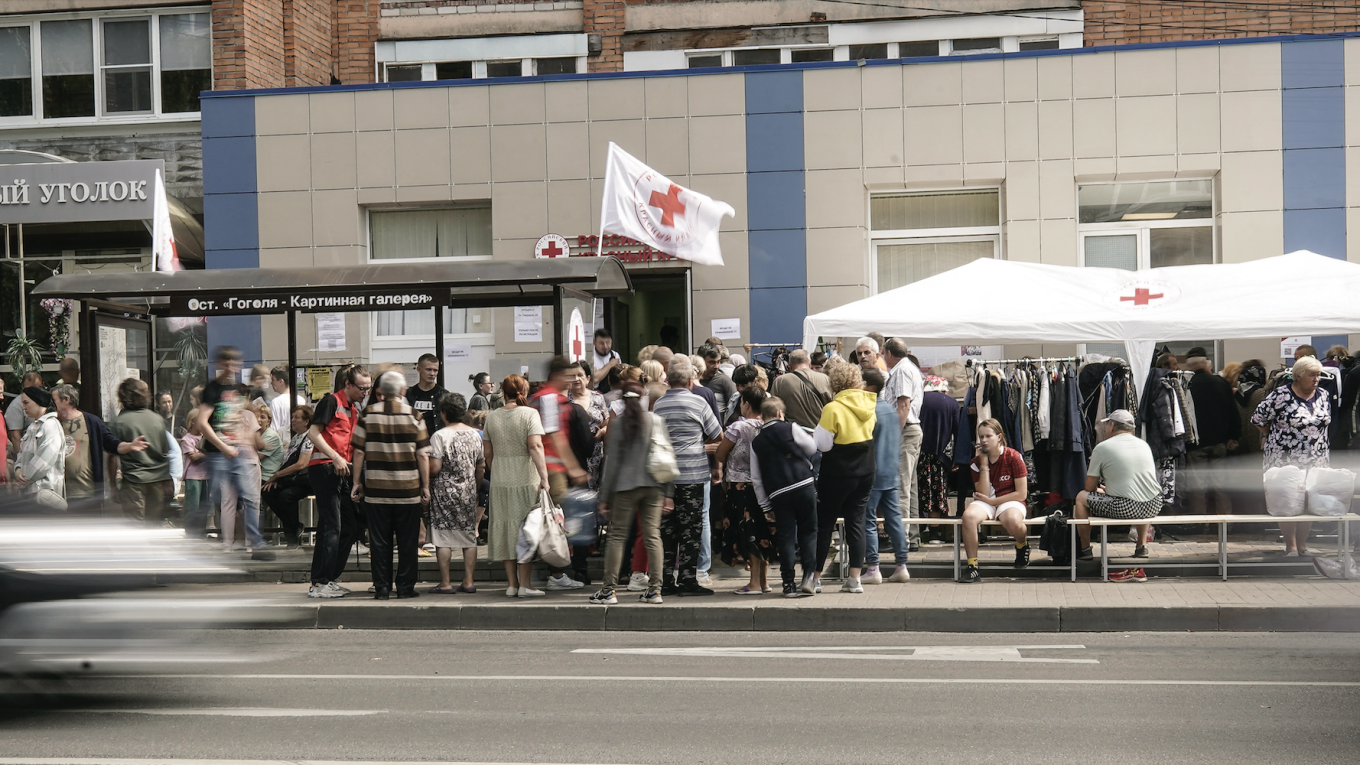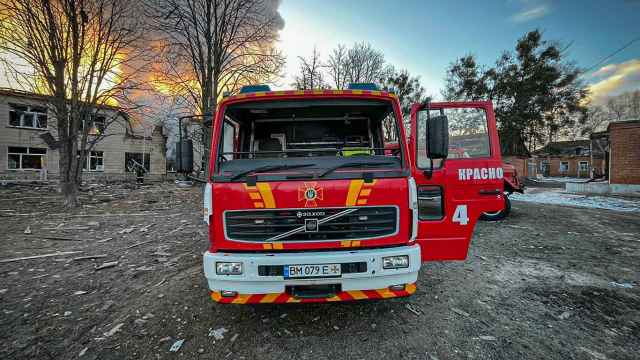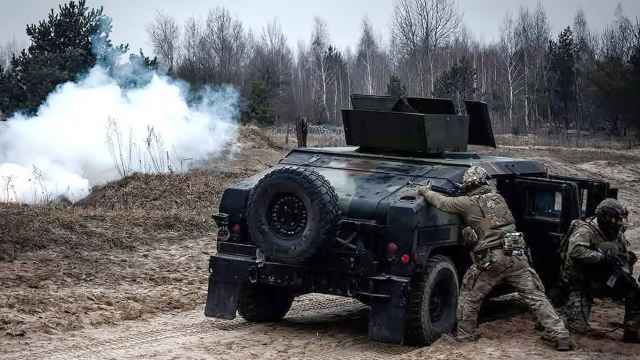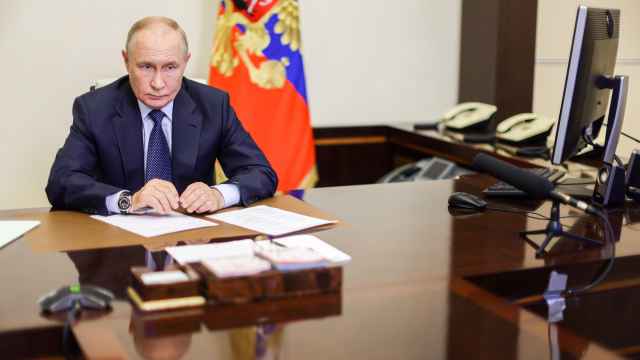As Kyiv’s incursion into Russia’s Kursk region continues for a third week, civilians on the ground are voicing growing anger toward Ukraine, fellow Russians and their own government, which they feel has abandoned them and tried to downplay the incursion.
Kursk region residents who spoke to The Moscow Times expressed frustration with what they see as government inaction and fears about the war now at their doorstep.
Their names have been changed for security reasons.
“People are of no concern to anyone,” Anna, a 28-year-old resident of the Kursk region, told The Moscow Times, criticizing the Kremlin's response to the assault.
“For Russia, we are just a piece of the map. For Ukrainians, we are enemies supporting Putin’s regime. Everyone [here] is on their own,” she said.
While Russia has declared a federal-level emergency in Kursk and prominent charities and authorities have launched campaigns to raise humanitarian aid, officials otherwise appear to have worked to make the incursion a footnote in the national discourse.
President Vladimir Putin, who has yet to address the nation about the incursion, was seen this week tasting local apples during a working trip to the republic of Kabardino-Balkaria and meeting with Azerbaijan's president in Baku.
Some state-run media outlets have used the incursion to further their pro-war narrative, reporting an apparent rise in people volunteering to fight in the war and describing how the incursion is supposedly uniting the country.
Ukraine’s forces, meanwhile, claim to have captured at least 92 settlements in the region and taken hundreds of prisoners — many of whom are conscripts.
Kursk residents who spoke to The Moscow Times said that officials are either unresponsive or ineffective in their efforts — yet refrained from blaming Putin directly.
Svetlana, 32, said that while locals blame Kyiv for the attack, they also question the competence of the Russian Armed Forces.
“How could they [Russia] have missed the buildup of such a large number of Ukrainian troops at the border?” Svetlana told The Moscow Times, adding that locals “do not directly blame the authorities for abandoning them.”
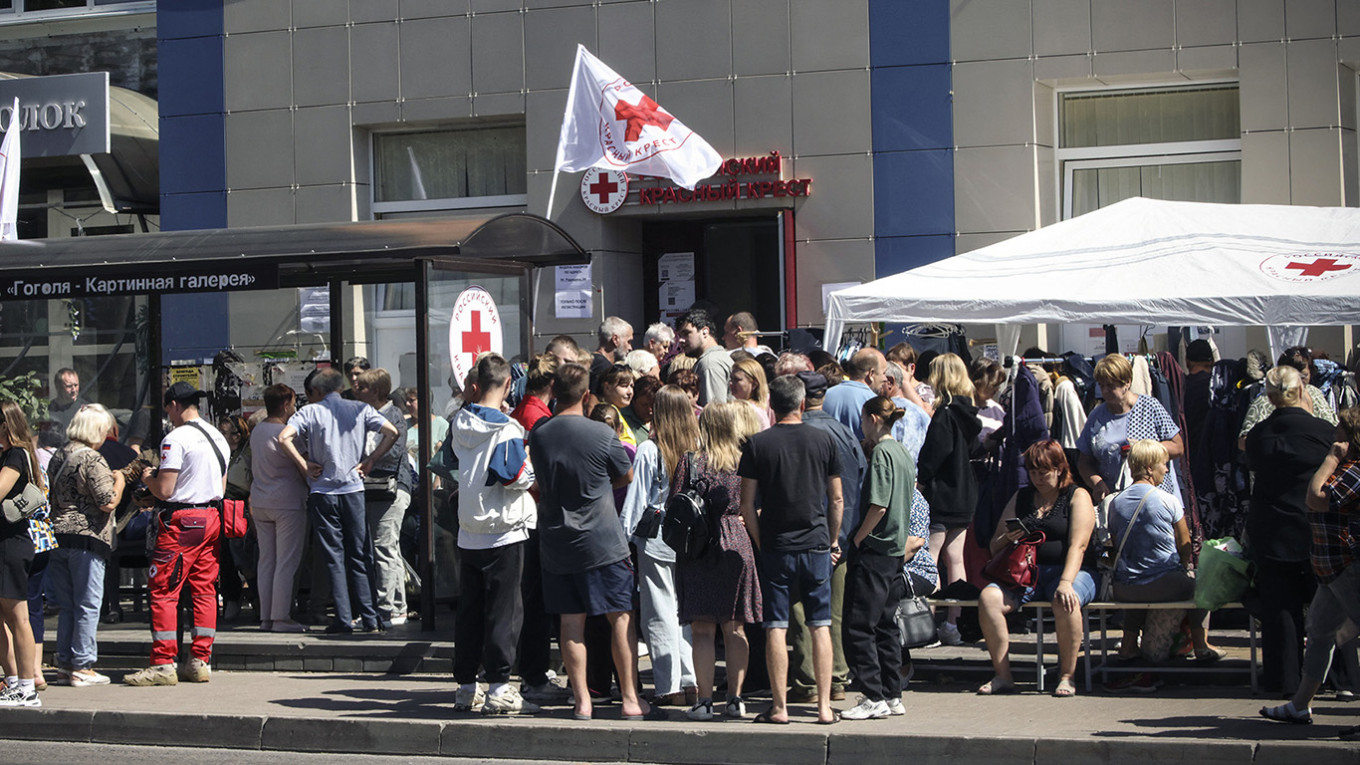
Other people appeared to be even more angry toward officials.
“How are the authorities solving people’s problems? They just lie, saying there’s no need to panic,” Anna, 28, told The Moscow Times.
“Among my acquaintances who have been affected in one way or another, everyone is shocked by the officials — they don’t f**king care about people.”
Beyond the frustration toward the Russian government, there is also growing anger towards Ukraine’s military.
While Ukrainian presidential adviser Mykhailo Podolyak said last week that the Kursk attack could force Russians to reconsider their view of the war and spark broader discussions about its consequences, the reality appears to be the opposite.
“Attitudes toward Ukraine have significantly worsened. If before there were people who sympathized or held a neutral position, now they've shifted to intense anger,” Kursk resident Svetlana told The Moscow Times.
At least 31 people have been killed and 143 injured during the incursion, the state-run TASS news agency reported Wednesday.
More than 130,000 people have been evacuated from border districts, abandoning their homes and belongings. Human rights organizations estimate that at least 2,000 people have gone missing.
Victoria, 26, a volunteer for the Kursk Red Cross, told The Moscow Times that she does not feel anger towards Ukraine, saying that Ukrainians “are also just hostages of the situation."
Others expressed less sympathy, with one resident saying: “Ukrainians are certainly not our friends right now.”
“The rhetoric from the other extreme: ‘We’ve sat in basements, now it's your turn.’ How are these pro-Ukrainian bulls***ters any better than those supporting this crap from the Russian side?” said Anna. “Do they think that a victim can’t become an aggressor?”
A Russian opposition politician who traveled to Kursk city to help those who evacuated from the border area said “it is becoming clear to many people that the war has come to our territory.”
People “in temporary accommodation centers [in Kursk] told us that the war started for them on August 6,” the politician said, referring to the day when the incursion started.
The politician spoke on condition of anonymity due to the risk of prosecution for speaking to a media outlet labeled “undesirable” by Russia.
While public interest in the war was declining before the Kursk incursion, experts say that discontent toward the authorities’ response to the attack is largely confined to those directly affected by it — and is “too localized to have a significant impact on nationwide sentiment.”
“Even if there is a sharp spike in dissatisfaction with the authorities within a specific, narrow segment (for example, due to problems with evacuation and so on), the overall trend across the country could still favor the authorities,” Russian political scientist Tatiana Stanovaya wrote on X (formerly Twitter).
“The Ukrainian attack might actually lead to a rallying around the flag and a rise in anti-Ukrainian and anti-Western sentiments (although it may seem hard to imagine those sentiments increasing further),” Stanovaya said.
Meanwhile in Kursk, the situation remains fraught for ordinary civilians caught up in the conflict.
Valery, a man in his 50s, described to The Moscow Times how his relatives had to flee the border area “amid the sound of shelling.”
“Everyone is silent. And those who aren’t silent are just spouting nonsense — from the Ukrainians: ‘We’ve already seized all of Kursk, you’re screwed.’ From the pro-Kremlin side: ‘We’ll hang all the Ukronazis!’”, Anna said, referring to the Kremlin’s unbacked claim that Ukraine’s government is “neo-Nazi.”
“What do I feel? Rage. From my own helplessness,” she added.
A Message from The Moscow Times:
Dear readers,
We are facing unprecedented challenges. Russia's Prosecutor General's Office has designated The Moscow Times as an "undesirable" organization, criminalizing our work and putting our staff at risk of prosecution. This follows our earlier unjust labeling as a "foreign agent."
These actions are direct attempts to silence independent journalism in Russia. The authorities claim our work "discredits the decisions of the Russian leadership." We see things differently: we strive to provide accurate, unbiased reporting on Russia.
We, the journalists of The Moscow Times, refuse to be silenced. But to continue our work, we need your help.
Your support, no matter how small, makes a world of difference. If you can, please support us monthly starting from just $2. It's quick to set up, and every contribution makes a significant impact.
By supporting The Moscow Times, you're defending open, independent journalism in the face of repression. Thank you for standing with us.
Remind me later.



